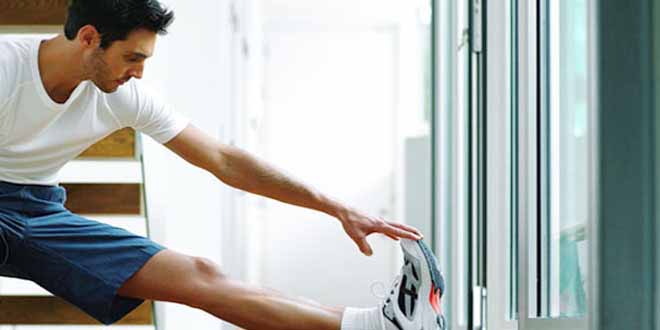
Did You Stretch and Warm-Up Today?
Do you warm-up before working out? How about stretching your muscles? It’s not too late to start if you don’t do so already. Before you begin a hardcore strength training routine or an intense cardio workout, you need to stretch and warm-up your muscles to prevent injury. The process is as follows: warm-up, stretch, complete your strength training/intense cardio session, and finally perform a cool-down stretch.
Get Ready For Your Warm-Up
Warming up is one of the most important elements of an exercise program. It is a low level activity so you can opt for brisk walking, light jogging or even jumping jacks. It prepares your heart for the more rigorous exercises and raises total body temperature as well as muscle temperature. The warm-up period allows the cardiovascular system, respiratory system, nervous system and the musculoskeletal system to gradually increase its functioning in order to prepare for the grueling session ahead.
Let’s take a look at the two main types of warm-ups:
Passive Warm-Up
The core idea is to raise body temperature to loosen muscles effectively. Passive warm-up techniques include wearing heavy apparel, wearing extra layers of clothing, or sitting in a sauna/steam bath. An advantage of passive warm-ups is that energy is not spent, allowing you to put all your energy into the more intense work out that is to follow. However, the disadvantage is that the body will warm-up slower, extending the duration of your workout.
Active Warm-Up
In active warm-ups you engage in light activity to increase the body temperature. An example would be jogging at the lowest intensity for a few minutes, or doing 20 jumping jacks. The idea is to get your heart pumping and blood circulating to raise the temperature of the body, which in turn helps to heat up the muscles, ligaments and tendons. Active warm-ups are generally more effective than passive warm-ups, but you can combine the two.
Time To Stretch A Little
You need to stretch after you warm-up, not before. Why? If you stretch before, your muscles are cold and more prone to injuries such as muscle tears or strains. The warm-up period before stretching increases the temperature of the muscles, allowing the collagen fibers to become more elastic and flexible. This lets you stretch out the muscles more effectively without the risk of injury.
After warming up, engage in dynamic stretching. Dynamic stretching means slow controlled movements rather than remaining still and holding a stretch. These include rotating your arms in a circle while they are extended outward, hip rotations, neck rotations, as well as knee lifts in which you bring your knee up to your chest while twisting your body the other way.
Some sample stretches include the following:
- Lift your right knee to your chest and twist your hips to the right. Then perform the same step with the other knee, without stopping.
- Bend your knee and bring your leg so that your feet touch your buttocks. This stretches the quads. Don’t hold the position though, move on to the other leg bending your knee and touching your buttock.
Perform each dynamic stretches for 30 seconds at least. You can also practice yoga poses if that appeals to you more. Those who are familiar with the basics of yoga can perform the sun salutation pose to stretch multiple parts of the body, or even the downward-facing dog pose.
Post Work-Out Warm-Up
So you’ve warmed up, stretched and completed the intense workout session. Now what? Stretch some more! This time perform static stretches. Static stretches will lengthen your muscles and improve flexibility. These stretches are to be performed with you remaining relatively still, with minimal movements.
Examples include sitting down and extending your feet either directly in front of you or spreading your legs and bending over to reach for your ankles. The same can be done while standing up. Yet another static stretch would be to tilt your neck to each side and hold the position.
The Takeaway
Proper warm-ups and stretching provide many benefits: the risk of injury is reduced, athletic performance can be improved, muscle efficiency is enhanced and the severity of post-exercise muscle soreness is reduced. As always, stay safe, stay healthy and have fun with physical fitness!

